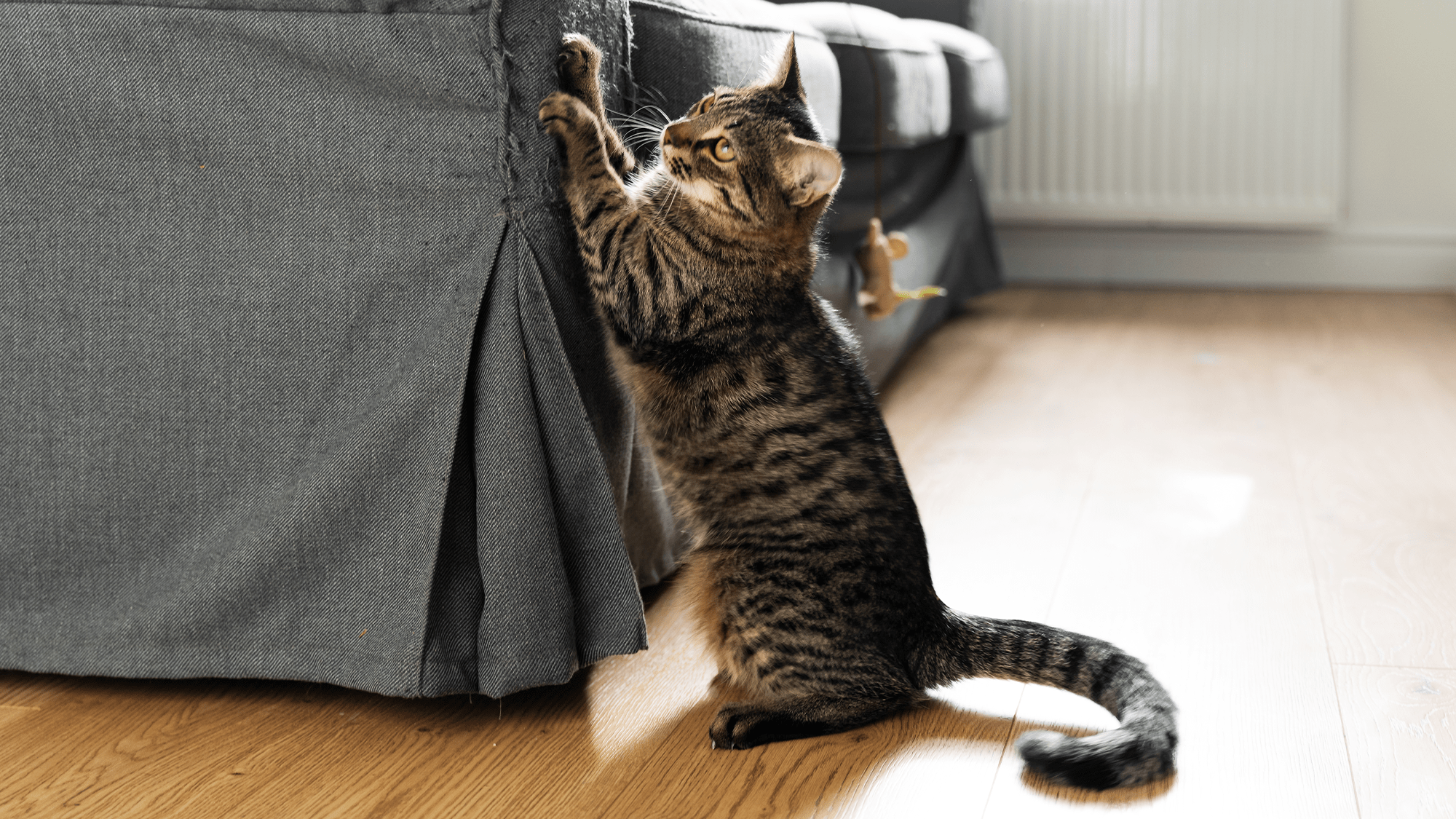

For many cat owners, torn furniture seems to come with the territory. Our feline friends have an innate instinct to use their claws and scratch, that humans often view as a behavioral problem to be corrected. Recently, a team of researchers recently explored what factors influence domestic cats to scratch and found it’s not necessarily simply tied to a bad kitty. Personality traits, the presence of small children, and the type of play cats are engaging in have a significant impact on scratching behavior. The findings are detailed in a study published July 3 in the journal Frontiers in Veterinary Science and points to some ways that cat owners can try to prevent scratching.
“Our findings can help caregivers manage and redirect scratching to appropriate materials, which could help foster a more harmonious living environment for both cats and their caregivers,” Yasemin Salgirli Demi̇rbas, a study co-author and veterinary researcher at Ankara University in Turkey, said in a statement.
In the study, the team surveyed over 1,200 cat owners in France about their cats’ daily lives, characteristics, and undesired scratching behaviors. They found that stress was the leading reason for unwanted scratching. If children are around–especially younger kids–stress appears to be amplified and is one of the motivations for cats to stress-scratch. However, the authors note that this link is still not fully understood and more study is needed.
[Related: 5 ways to ensure your cat actually likes playtime.]
A separate factor that also may be connected to stress is playfulness. Stress levels can rise when cats play for long periods of time due to uninterrupted stimulation.
“We see a clear link between certain environmental and behavioral factors and increased scratching behavior in cats,” said Salgirli Demirbas. “Specifically, the presence of children in the home as well as high levels of play and nocturnal activity significantly contribute to increased scratching. Cats described as aggressive or disruptive also exhibited higher levels of scratching.”
While some factors like a cat’s personality and the presence of children can’t be changed to limit scratching, there are some interventions that cat owners can make.
“Providing safe hiding places, elevated observation spots, and ample play opportunities can also help alleviate stress and engage the cat in more constructive activities,” Salgirli Demirbas said.
Setting up multiple short play sessions that best mimic successful hunting scenarios is crucial. This can be done by using treat dispensers shaped like mice, setting up high perches in the home, making sure that play with cats is more interactive, and letting cats safely explore the outdoors occasionally. Play sessions that feed a cat’s inner hunter are more likely to sustain a cats’ interest, resulting in decreased stress levels and reduce excessive scratching on furniture. Short play sessions can also foster the bond between cats and their caretakers, according to the team. Putting scratch posts in areas that cats frequently pass or near their favorite spot to rest, or use pheromones can also lessen scratching on furniture.
[Related: Your cat is probably more attached to you than you think.]
“Understanding the underlying emotional motivations of scratching behavior, such as frustration, which seem to be linked to personality traits and environmental factors, allows caregivers to address these issues directly,” said Salgirli Demirbas.
The researchers relied on self-reported data, which is prone to subjectivity. However, they say that they have gained some unique insights into cats’ scratching behavior that they hope they can build on to develop more effective strategies to manage this behavior.
